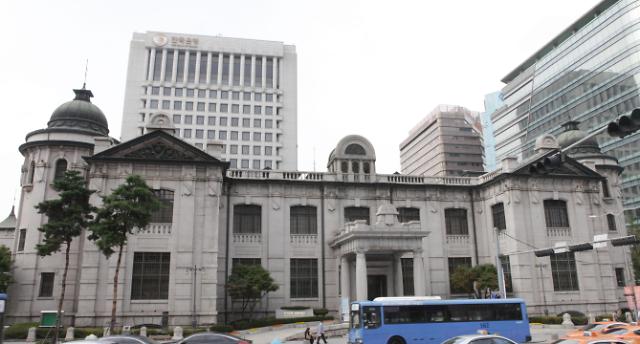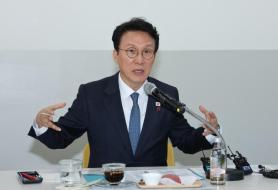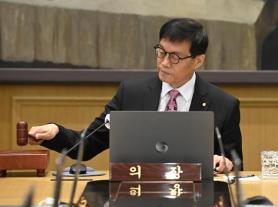
Following is the full text of a statement the BOK issued after a meeting of its Monetary Policy Committee.
"Based on currently available information, the committee considers that although the trend of a solid economic recovery in the United States has been sustained, the sluggishness of economic activities in the euro area has continued, while economic growth in emerging market countries such as China has slowed somewhat. The committee forecasts that the global economy will sustain its modest recovery going forward, centering around the United States, but judges that the possibility exists of its being affected by changes in the monetary policies of major countries, by the weakening of economic growth in the euro area and China, by financial and economic unrest in the oil-producing countries, and by geopolitical risks.
"Looking at the Korean economy, while export growth has slowed somewhat, the committee judges that the recovery of domestic demand has not been strong and the sentiments of economic agents remain weak. On the employment front, the number of persons employed has expanded steadily, led by increases in the 50-and-above age group and in the service sector. The committee expects that the domestic economy will show a modest trend of recovery going forward, but that the negative output gap will persist for a considerable time.
"Consumer price inflation fell from 1.0 percent the month before to 0.8 percent in December, due mainly to an increase in the scale of decline in petroleum product prices. Core inflation excluding agricultural and petroleum product prices registered 1.6 percent, as in November. Looking ahead, the committee forecasts that inflation will gradually rise from the second half of this year, after remaining at a low level despite the hike in cigarette prices under the influence for example of international oil price movements. In the housing market, sales and leasehold deposit prices continued their uptrends — centering around Seoul and its surrounding areas in the former case and around the rest of the country in the latter.
"In the domestic financial markets, stock prices have fallen due for example to stock price declines in other major countries and to the net selling of domestic stocks by foreigners. After rising, long-term market interest rates have fallen back. The Korean won has appreciated against the U.S. dollar, due mainly to the widening of the current account surplus and to a slowdown in Japanese yen depreciation, while appreciating against the yen as the synchronization between movements of the won and the yen has weakened. Bank household lending has sustained its substantial uptrend, led by mortgage loans.
"Looking ahead, while supporting the recovery of economic growth, the committee will conduct monetary policy so as to maintain price stability over a medium-term horizon and pay attention to financial stability. In this process, it will closely monitor external risk factors such as international oil prices and shifts in major countries’ monetary policies, as well as developments related to the spare capacity in the domestic economy and the trends of household debt and capital flows."
Copyright ⓒ Aju Press All rights reserved.



